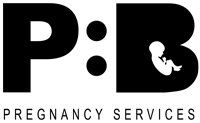Most mothers tend to experience back pain in pregnancy. Most women will have this pain at some point in the course of their pregnancy. Fortunately, there is so much that a woman can do to prevent the back pain from becoming a long-term health issue and to ease the discomfort that comes with it. Given the dangers that can accompany the use of medication for unborn babies, it is very important that women look for effective and safe solutions to deal with back pain in pregnancy.
What causes back pain in pregnancy?
Pregnancy back pain has two main causes and both of them involve postural changes. During the early stages of pregnancy, the body releases a relaxin hormone that aids in the relaxation of joints and ligaments in the pelvis. The relaxation makes more space for the baby growing in the womb and creates pelvic instability. The spine rests on the pelvis and this change leads to the instability of the spine. As a result, the pregnant woman is unable to keep the spine aligned and this causes back pain in pregnancy. In addition, unstable joints of the lower back can easily cause irritation and become hypermobile.
The next major cause of pregnancy back pain is the shifting of the center of gravity. With the growth of the baby in the womb, the center of gravity moves from the hips up to the stomach. The back muscles are not designed to support the weight of the upper body as most of the muscles, especially those in the stomach, are weak and overstretched. Even in the early pregnancy stages, the abdominal muscles start stretching and this results in back pain in pregnancy particularly for women who have weak stomach muscles.
Reducing pregnancy back pain
Simple lifestyle changes: some simple lifestyle changes can go a long way towards easing back pain in pregnancy. For instance, for pregnant women who are fond of wearing high heels, changing to flats is highly recommended. Also, avoid moving or lifting heavy items requiring the use of the back. In case you want to pick an item from the floor, make sure that you squat rather than bend. When sleeping, use a lumbar pillow or a rolled blanket to support your back. Finally, don’t sleep on a very soft bed but consider placing a board between the box springs and the mattress to enhance its firmness and this will help ease and reduce the back pain.
Love Your Posture: months before the delivery, the balance, and posture of a pregnant woman change to accommodate the growing fetus. Back pain in pregnancy can be eased significantly by undertaking some gentle exercises to strengthen the abdominal muscles. Stationary bicycling, walking, and swimming is safe exercises that promote healthy pregnant bodies. In addition, consider enrolling in a pregnancy yoga class to learn proper posture during the different stages of your pregnancy. There are many health benefits of exercises and a pregnant woman should engage in them.
Massage: Back massaging is very important for a pregnant woman as it helps in soothing aching, tired muscles. Simply lean forwards over a chair or alternatively lie on the side. Your partner should gently massage you especially on the lower back muscles that run on both sides of the spine. You can get further help from your
midwife, a
physiotherapist, or a
professional massage therapist.
Maternity pillows: There are some special types of pillows designed for pregnant women and they go a long way in reducing back pain in pregnancy. These maternity pillows allow you to sleep on the side and the wedge-shaped pillow can be of significant help to your tummy and back. In case the maternity pillow you have isn’t making you comfortable, it is advisable that you experiment with sleeping with different pillows until you get the most appropriate one for you.
Support belts: for a pregnant woman, support belts play the very important role of taking some weight of the weight off your back and tummy muscles and help to support your pelvic joints.
Even though back pain in pregnancy is one of the most common discomforts in pregnant women, the pain might at times be a signal of a more serious, underlying problem. If the back pain gets severe, it is highly advisable that you visit your health provider. Sometimes, back pain could be a symptom of arthritis-related or osteoporosis associated conditions. Your gynecologist should be able to advise you accordingly but in most cases, back pain in pregnancy is usually a normal condition. In most cases, heeding some simple lifestyle changes as highlighted here below can help you experience a normal pregnancy and a happy delivery. For help with back pain during pregnancy please contact our midwife osteopath team using the link below








